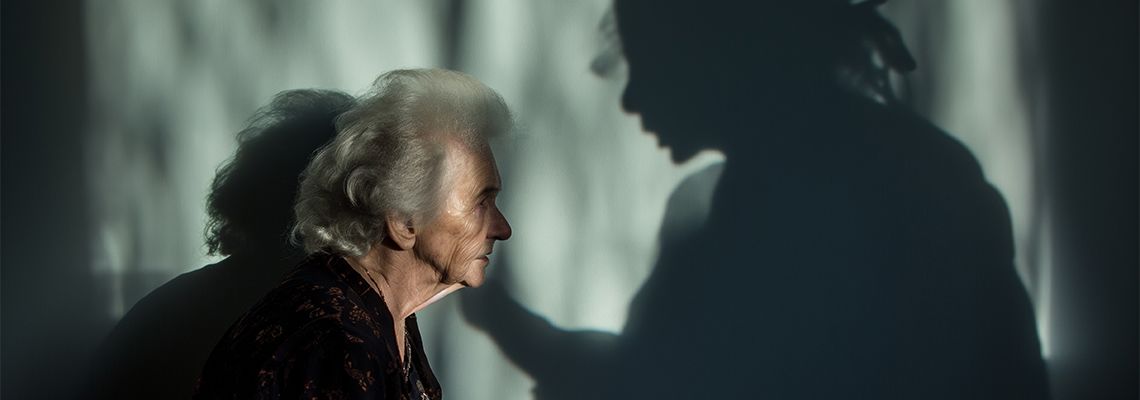
How Can Families Hold Nursing Homes Accountable for Abuse and Neglect?
If you or a loved one has been affected by nursing home abuse or neglect, the legal system can provide recourse, but the process requires a clear understanding of how to move forward. When it comes to confirming that nursing homes uphold the standards of care expected for our loved ones, holding them accountable is crucial.
At Mook Law Firm LLC, located in Kansas City, Missouri, we understand the pain and frustration families experience when their loved ones are victims of abuse or neglect in nursing homes.
Elder abuse is a serious issue that can take many forms, from physical and emotional harm to neglectful treatment, and it’s important for families to know that they can take action to hold nursing homes accountable for mistreating their elderly residents.
Not only can families bring legal action against nursing homes but they can also take steps to make sure that justice is served for the victim. Here, we'll discuss how families can hold nursing homes accountable for abuse and neglect, including the legal avenues available, the types of abuse to look for, and the importance of gathering evidence to support the case.
What Is Elder Abuse?
Elder abuse refers to any intentional or negligent act that causes harm or distress to an older adult. In a nursing home setting, this can include physical, emotional, and financial abuse, as well as neglect. The definition of abuse can vary, but it generally involves acts that violate the dignity and rights of the elderly person, especially when they are vulnerable due to age or medical conditions.
Types of Elder Abuse in Nursing Homes
Elder abuse in nursing homes can take many forms. It is crucial for families to be aware of the signs of abuse and neglect so that they can take action as soon as possible.
Physical abuse: This includes hitting, slapping, or using unnecessary physical force against the resident. Signs may include bruises, cuts, and fractures that can’t be easily explained.
Emotional or psychological abuse: This involves verbal threats, humiliation, or isolation that causes emotional harm. Signs can include withdrawal, anxiety, depression, or fear of certain staff members.
Sexual abuse: Any form of sexual contact or behavior without consent, such as inappropriate touching or sexual assault, falls under this category.
Neglect: This is the failure of nursing home staff to provide necessary care, including failure to meet basic needs like food, water, medical attention, or hygiene. Symptoms may include malnutrition, dehydration, poor hygiene, or untreated medical conditions.
Financial abuse: This includes taking money or assets from a resident through fraud, manipulation, or coercion.
Recognizing the signs of elder abuse is the first step in protecting your loved ones and taking legal action.
How Can Families Hold Nursing Homes Accountable?
If you suspect that a loved one is being abused or neglected in a nursing home, it’s crucial to take steps to hold the responsible parties accountable. Depending on the situation, families may have legal options to seek justice, including civil lawsuits, criminal charges, and regulatory complaints.
1. Report the Abuse or Neglect to Authorities
One of the first things families should do when they suspect elder abuse or neglect is report it to the appropriate authorities. In Missouri, you can contact:
The Missouri Department of Health and Senior Services (DHSS): They can investigate reports of abuse or neglect and intervene in serious cases.
Adult Protective Services (APS): APS can conduct investigations into allegations of abuse or neglect and work to protect vulnerable adults.
Local law enforcement: In cases of physical abuse or sexual assault, contacting the police is necessary to begin a criminal investigation.
Our attorney can help you relay your situation.
2. File a Civil Lawsuit Against the Nursing Home
Once abuse or neglect has been confirmed, families can pursue a civil lawsuit against the nursing home.
Types of lawsuits to consider:
Negligence claims: These claims arise when the nursing home fails to provide the appropriate care for the resident. This could include failure to properly monitor residents, administer medications, or provide basic hygiene and nutrition.
Intentional torts: These claims involve instances where the nursing home staff intentionally harmed the resident, such as physical abuse or emotional cruelty.
Wrongful death claims: If the abuse or neglect leads to the resident’s death, the family can file a wrongful death lawsuit to seek compensation for their loss.
A lawsuit can seek compensation for the victim's pain, suffering, medical expenses, and any other damages related to the abuse. This legal action can also serve to hold the nursing home financially responsible for its actions.
3. Hold the Nursing Home Accountable Through Criminal Prosecution
While civil lawsuits focus on compensation for the victim, criminal prosecution holds the responsible parties accountable for breaking the law. When nursing home staff members commit acts of abuse or neglect, criminal charges can be brought against them. Criminal prosecution can result in fines, imprisonment, or other penalties for the perpetrator.
Criminal charges for physical abuse: If the staff member’s actions caused harm to the resident, they could face assault or battery charges.
Criminal charges for sexual abuse: Perpetrators of sexual abuse can face serious criminal charges that carry significant penalties.
Criminal charges for neglect: In extreme cases of neglect, such as when a resident dies from dehydration or untreated injuries, charges of neglect or manslaughter can be brought.
By pursuing criminal charges, families can seek justice for the harm done to their loved one and send a message that nursing home abuse will not be tolerated.
What Evidence Is Needed to Prove Elder Abuse or Neglect?
To hold a nursing home accountable for elder abuse or neglect, you need strong evidence that clearly demonstrates the wrongdoing. Gathering the right evidence is crucial for the success of your case.
1. Medical Records
Medical records play a significant role in proving abuse or neglect. These records document any injuries or medical conditions caused by abuse or neglect, such as unexplained bruises, untreated infections, or malnutrition.
What medical records to gather:
Hospital records showing injuries that result from abuse or neglect
Doctor’s notes or evaluations from visits to medical professionals
Prescription records that show a lack of proper medication administration
Doctors or medical experts can also provide testimony regarding the extent of the injury and how it relates to the alleged abuse or neglect.
2. Photographs and Videos
Photographs and videos can serve as powerful evidence in cases of elder abuse or neglect. Take photos of any visible injuries, such as bruises, cuts, or bedsores.
Types of visual evidence to collect:
Photos of physical injuries, such as bruises or fractures
Video footage of the conditions in the nursing home, including unsanitary living conditions
Photos of untreated wounds, malnutrition, or physical deterioration
If possible, video recordings of the resident’s living conditions or statements about their treatment can also provide critical evidence.
3. Witness Testimony
Witness testimony can also be essential in proving that abuse or neglect took place. Eyewitnesses, such as other residents or staff members, may be able to provide critical information about what happened.
Key witnesses to consider:
Other residents or staff who may have witnessed the abuse or neglect
Family members who visited the nursing home and noticed signs of mistreatment
Healthcare providers who treated the resident after the abuse
Additionally, family members or caregivers who have visited the resident regularly can provide testimony about any changes in their loved one’s health or behavior.
4. Nursing Home Records
Nursing home records can provide valuable evidence that demonstrates patterns of negligence or abuse. These records include staffing logs, incident reports, and inspection records.
Types of nursing home records to obtain:
Staffing records to see if the nursing home was adequately staffed
Incident reports that document complaints or previous instances of abuse
Records of previous inspections and violations from regulatory authorities
A history of complaints, violations, or inadequate staffing may indicate that the facility failed to meet basic care standards.
Contact Us Today
If you suspect your loved one has been a victim of nursing home abuse or neglect, it’s essential to act quickly. At Mook Law Firm LLC, we are dedicated to helping families hold nursing homes accountable for the harm caused to their elderly residents.
We serve clients in Kansas City, Missouri, and surrounding areas. Contact us today to schedule a consultation, and let us help you get justice for your loved one’s suffering.

